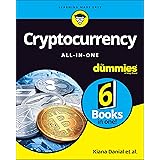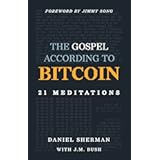Navigating the World of Bitcoin Wallets: Securing Your Digital Future in 2025
Securing your Bitcoin is paramount, a truth that becomes clearer with each passing year in the dynamic world of cryptocurrency. As highlighted in the video above, leaving your valuable digital assets on an exchange exposes you to unnecessary risks, making a dedicated Bitcoin wallet an absolute necessity for true ownership and peace of mind.
This comprehensive guide delves deeper into the landscape of Bitcoin wallets, expanding on the crucial insights presented, ensuring you possess the knowledge to choose the ideal solution for your unique needs. From the latest technological advancements to the fundamental principles of crypto security, we explore how to safeguard your investment effectively.
The Indispensable Role of a Bitcoin Wallet: Understanding “Not Your Keys, Not Your Coins”
The core philosophy of cryptocurrency revolves around decentralization and self-sovereignty, embodying the powerful mantra: “Not your keys, not your coins.” When your Bitcoin resides on an exchange, you effectively own an IOU; the exchange holds the private keys that grant access to your funds, acting as a custodian.
1. This custodial arrangement can be likened to storing your gold in a bank vault versus burying it in your backyard. While a bank might seem convenient, its security is subject to external factors and the bank’s own solvency. History is replete with cautionary tales like Mt. Gox, Celsius, and FTX, where billions of dollars in user funds vanished due to hacks, mismanagement, or insolvency, leaving countless investors devastated.
2. A Bitcoin wallet, conversely, is your personal, digital strongbox. It allows you to hold your private keys, granting you direct and exclusive control over your Bitcoin. This direct ownership is the cornerstone of true crypto security, empowering you to manage your digital wealth without reliance on a third party.
Hot Wallets vs. Cold Wallets: A Foundational Distinction in Crypto Security
Choosing the right Bitcoin wallet begins with understanding the fundamental differences between hot and cold storage solutions. Each type offers distinct advantages and trade-offs, making them suitable for different user profiles and security requirements.
Hot Wallets: Convenience with Caution
Hot wallets are applications that are connected to the internet, offering unparalleled convenience for frequent transactions. These can include mobile apps, desktop software, or browser extensions, facilitating quick buying, selling, and transferring of Bitcoin with ease.
3. While hot wallets are generally user-friendly and offer immediate access to funds, their internet connectivity makes them inherently more susceptible to online threats. This exposure means they can be targets for malware, phishing attacks, or remote hacking attempts, posing a greater risk to your digital assets.
4. For this reason, hot wallets are often compared to keeping cash in your physical wallet for daily expenses. You wouldn’t carry your entire life savings in your pocket; similarly, hot wallets are best utilized for smaller amounts of Bitcoin intended for regular use, rather than long-term storage of significant holdings.
Cold Wallets: The Apex of Security
Cold wallets, or cold storage solutions, are specifically designed to keep your private keys entirely offline, offering the highest level of security for your Bitcoin. These typically come in the form of hardware devices that isolate your keys from internet-connected systems.
5. The offline nature of cold wallets provides an impenetrable barrier against online hacking attempts, making them the preferred choice for long-term investors or “hodlers” who prioritize security above all else. Imagine a cold wallet as a high-security bank vault or a safety deposit box for your digital assets.
6. While cold wallets offer superior protection, they sacrifice some convenience. Transactions require physical interaction with the device, and the process is generally slower than with a hot wallet. This trade-off between security and convenience is a critical consideration when selecting your storage method for Bitcoin wallets.
Custodial vs. Non-Custodial: Who Holds the Keys to Your Bitcoin?
Beyond hot and cold, another vital distinction for Bitcoin wallets is whether they are custodial or non-custodial. This classification directly addresses who controls your private keys and, by extension, your Bitcoin.
7. A custodial wallet means a third party holds your private keys on your behalf. While this can offer convenience and potential recovery options, it reintroduces the very risk that self-custody aims to mitigate: reliance on another entity. Your funds are not truly yours, as the custodian has ultimate control.
8. Non-custodial wallets, conversely, put you in complete control of your private keys. This immense freedom comes with significant responsibility; if you lose your recovery phrase (often called a seed phrase) and access to your wallet, your Bitcoin could be permanently lost. This model truly embodies the spirit of decentralized ownership.
Top Bitcoin Wallets in 2025: A Deep Dive into Cutting-Edge Security Solutions
The market for Bitcoin wallets is constantly evolving, with new technologies emerging to enhance security and user experience. Here, we elaborate on some of the top picks for 2025, detailing their unique features and why they stand out.
Best Wallet: Streamlined Security for Newcomers
The “Best Wallet” platform is designed with the beginner in mind, aiming to simplify the often-intimidating process of securing Bitcoin. Its innovative approach addresses one of the biggest pain points for new users: the management of complex seed phrases.
9. Instead of a traditional seed phrase, Best Wallet employs Multi-Party Computation (MPC) technology. This advanced cryptographic technique splits your private key into multiple parts, distributing them across different locations. One part might reside on your mobile device, while another is securely held on Fireblocks’ robust servers. This architecture prevents any single point of failure, meaning a hacker would need to compromise multiple, independent locations to gain access to your funds, making it significantly more difficult to breach.
10. This seamless setup makes Best Wallet feel familiar, much like using a conventional banking or finance application, reducing the steep learning curve often associated with cryptocurrency. The integration of direct Bitcoin purchasing options via debit card or PayPal further enhances its accessibility for those new to the space.
Ledger: The Unquestioned Hardware King
For many years, Ledger has remained a titan in the hardware wallet sector, synonymous with robust security and extensive adoption. It represents the gold standard for cold storage, providing an impenetrable fortress for your private keys.
11. Ledger devices ensure that your private keys never come into contact with an internet-connected computer or phone. All cryptographic operations, including signing transactions, occur securely within the device itself. Users must physically confirm each transaction on the device’s screen, adding a critical layer of physical security against remote hacks.
12. The product line, including the budget-friendly Nano S Plus, the Bluetooth-enabled Nano X, and the innovative Ledger Stax with its customizable touchscreen, caters to a wide spectrum of users. This range ensures that individuals, from casual investors to dedicated “hodlers” accumulating substantial Bitcoin, can find a model that fits their specific security needs and budget.
Trezor: The Open-Source Pioneer
As the world’s first hardware wallet, launched in 2013, Trezor has established a legacy built on transparency and community trust. Its commitment to open-source development sets it apart, fostering a high degree of confidence among its user base.
13. Being fully open-source means that Trezor’s code is publicly available for anyone to inspect, audit, and verify. This transparency eliminates the possibility of hidden vulnerabilities or malicious backdoors, as the collective intelligence of the cybersecurity community can scrutinize its integrity. This ethos resonates deeply with the decentralized principles of Bitcoin itself.
14. Modern Trezor models, such as the Trezor Safe 3 and Safe 5, incorporate advanced features like Shamir Backup, allowing users to split their recovery phrase into multiple distinct shares. This innovative method provides enhanced resilience against loss or theft, as only a predefined number of shares are needed to recover funds, moving beyond reliance on a single, vulnerable backup. The accompanying Trezor Suite application offers an intuitive interface for managing assets, buying, and selling Bitcoin securely.
Zengo: Seedless Security with 3FA Innovation
Zengo redefines the user experience for mobile Bitcoin wallets by completely eliminating the need for a traditional seed phrase. This revolutionary approach tackles a common pain point: the secure storage and recovery of seed phrases, which often proves challenging for beginners.
15. Instead of a seed phrase, Zengo utilizes a robust three-factor authentication (3FA) system for recovery and security. This typically involves a combination of your email, a biometric face scan, and a recovery file securely stored in your cloud service. This multi-faceted approach significantly simplifies recovery while maintaining a high level of security, making it particularly appealing for users who prefer a mobile-first experience.
16. With an impressive track record of never being hacked, Zengo demonstrates the efficacy of its security model. Its Pro version further enhances protection with features like theft protection, ensuring that even in the event of phone compromise, your funds remain secure. Furthermore, Zengo offers innovative inheritance options, allowing users to plan for the secure transfer of their digital assets to beneficiaries, an often-overlooked aspect of crypto wealth management.
Tangem: Tap-and-Go Cold Storage
Tangem introduces a novel, highly intuitive form of cold storage that blends the security of hardware with the simplicity of a credit card. Its innovative design makes securing Bitcoin remarkably straightforward, bypassing the complexity of traditional hardware devices.
17. This unique Bitcoin wallet comes in the form of a physical card, much like a debit or credit card. To sign transactions, users simply tap the card against their NFC-enabled smartphone. This “tap and go” functionality eliminates the need for USB cables, complex interfaces, or intricate setup procedures, making cold storage accessible to a broader audience.
18. Each Tangem set typically includes multiple cards, providing built-in redundancy; if one card is lost or damaged, backups are readily available. These cards boast an impressive 25-year lifespan guarantee, underscoring their durability and reliability as a long-term storage solution. Tangem truly embodies simple, secure, and convenient cold storage.
Cypherrock: Advanced Seedless Cold Storage for Hodlers
Cypherrock caters to the most security-conscious individuals and dedicated “hodlers” who demand maximum resilience and flexibility in their Bitcoin wallets. It moves beyond the single device or single seed phrase model, offering a highly distributed security architecture.
19. This sophisticated wallet employs Shamir’s Secret Sharing (SSS), a cryptographic algorithm that splits a single private key into multiple distinct shares. For instance, a private key might be divided into five parts, with a predefined threshold (e.g., two or three parts) required to reconstruct the original key. This means losing one or even two shares would not compromise the security of your Bitcoin, offering unparalleled fault tolerance.
20. Cypherrock’s design focuses on eliminating any single point of failure, making it an excellent choice for those who wish to distribute their recovery mechanism geographically or among trusted individuals. Like Zengo, it also integrates robust inheritance options, providing a structured and secure pathway for passing on digital wealth, ensuring your legacy is protected for future generations. For advanced users seeking the ultimate in distributed, seedless cold storage for their Bitcoin, Cypherrock presents a compelling solution.
Choosing Your Ideal Bitcoin Wallet: Balancing Security and Usability
Selecting the best Bitcoin wallet for your needs involves a thoughtful assessment of your specific use case, technical comfort, and desired level of security. Whether you are a beginner taking your first steps into crypto, an active trader managing daily transactions, or a dedicated long-term investor, a suitable solution exists.
Prioritize non-custodial options to maintain full control over your private keys and truly own your Bitcoin. Remember, understanding the nuances of these cutting-edge Bitcoin wallets is the first step toward safeguarding your digital assets effectively in 2025 and beyond.







